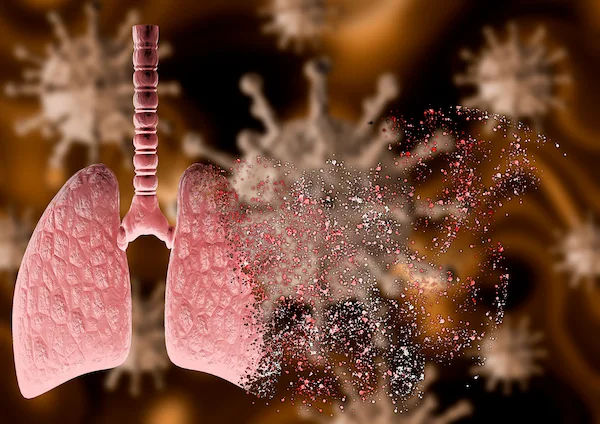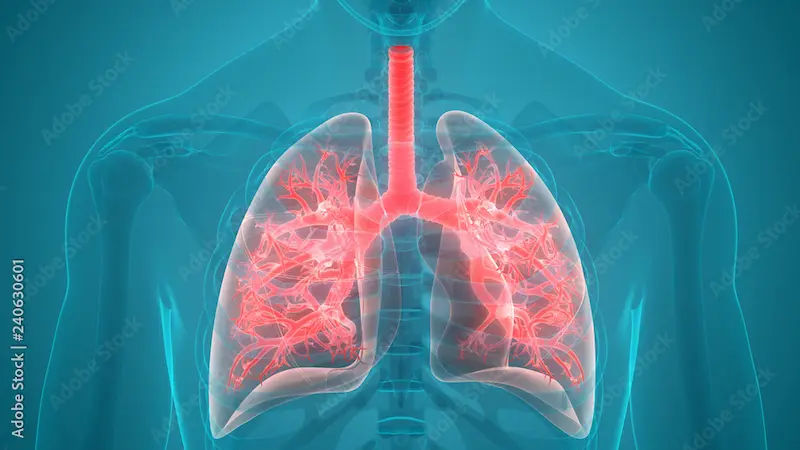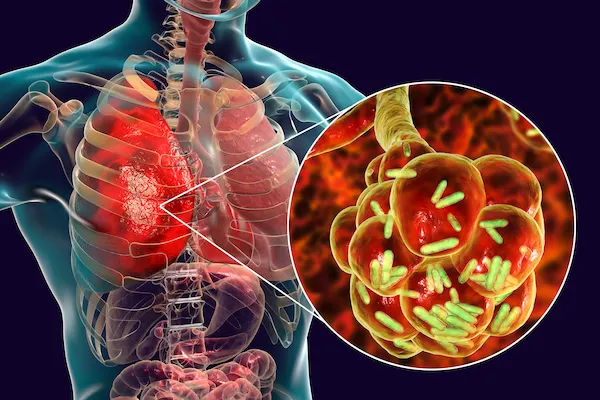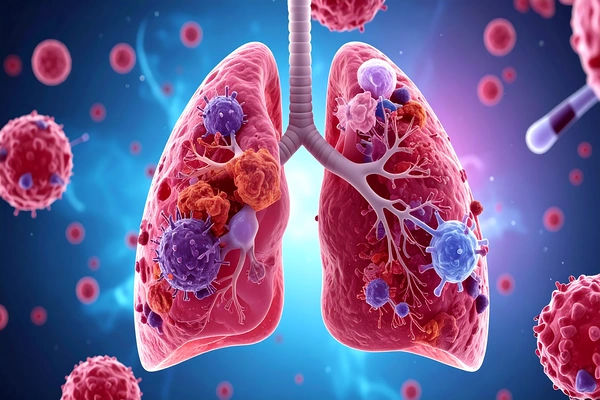Guide to Preventing Pneumonia In Cold Weather
Protect your lungs this winter. Learn essential tips for preventing pneumonia in cold weather, including hygiene, staying warm, and lifestyle choices.


Introduction
As the mercury drops and we retreat indoors, a hidden health risk often lurks in the cozy, heated air: pneumonia. This serious respiratory infection, characterized by inflammation in the air sacs of the lungs, sees a significant spike during the colder months. But why does cold weather create a perfect storm for pneumonia? More importantly, how can you actively fortify your defenses? This comprehensive guide moves beyond basic advice, diving into the science behind the seasonal risk and equipping you with actionable, evidence-based strategies. We'll explore everything from the crucial role of vaccination and hygiene to the lifestyle tweaks that can dramatically lower your risk. Whether you're a healthy adult or part of a high-risk group, this is your essential handbook for navigating the winter season with confidence and robust health.
Why Are Colder Months Prime Time for Pneumonia?
The link between winter and increased pneumonia cases isn't coincidental; it's a result of several interconnected factors that create an ideal environment for the pathogens that cause this illness to spread and take hold.
The Indoor Crowding Effect
Cold weather drives people indoors into closer proximity with others. Homes, offices, shopping malls, and public transport become hubs where viruses and bacteria can easily jump from person to person through respiratory droplets from coughs, sneezes, or even conversation. This increased exposure is a primary driver for the spread of influenza and the common cold, which are frequent precursors to secondary bacterial pneumonia.
Dry Air and Your Respiratory Defenses
Winter air is notoriously dry, both outdoors and indoors due to heating systems. This arid environment has a direct impact on your body's first line of defense: your respiratory tract. The mucous membranes in your nose and throat dry out, making it easier for invading pathogens to adhere and penetrate. Furthermore, the tiny hair-like structures called cilia, which work to sweep mucus and microbes out of your airways, become less effective in dry conditions. This one-two punch significantly compromises your natural barrier against lung inflammation.
H3: The Weakening of the Immune Response
Some research suggests that cold exposure itself can temporarily dampen the local immune response in the nasal passages. A well-known study from Yale University found that a drop in temperature in the nose of just 5°C could reduce the effectiveness of immune cells in fighting off the common cold virus. A weakened initial defense can allow a minor infection to progress into a more serious condition like pneumonia.
Consult Top Specialists
Know Your Enemy: Understanding Pneumonia
Bacterial vs. Viral Pneumonia: Spotting the Difference
Understanding the type of pneumonia can inform its management. Bacterial pneumonia, often caused by Streptococcus pneumoniae, tends to be more severe. It can come on suddenly with a high fever, chills, and a productive cough with rust-colored or greenish mucus. It is treated with antibiotics. Viral pneumonia, often stemming from influenza, RSV, or even SARS-CoV-2, usually starts with flu-like symptoms (fever, dry cough, headache) that gradually worsen. Treatment focuses on managing symptoms, as antibiotics are ineffective against viruses.
Common Symptoms You Should Never Ignore
While symptoms can vary, key signs of pneumonia in adults include:
- A persistent cough that may produce phlegm.
- Fever, sweating, and shaking chills.
- Shortness of breath, even during mild activity or at rest.
- Chest pain that worsens when breathing or coughing.
- Unusual fatigue, loss of appetite, and confusion (particularly in older adults).
It's critical to monitor these symptoms closely. A simple chest cold typically improves within a week, whereas pneumonia symptoms persist or worsen.
Your First Line of Defense: Proactive Prevention Strategies
Vaccination: The Most Powerful Weapon
Vaccination is the single most effective way to prevent pneumonia. It primes your immune system to fight off specific pathogens before they can cause an infection.
The Pneumococcal Vaccine
Who Needs It? The pneumococcal vaccine protects against the most common cause of bacterial pneumonia. The CDC recommends it for all adults 65 and older, all children under 2, and people aged 2-64 with certain chronic health conditions (like asthma, heart disease, diabetes) or who smoke.
The Annual Flu Shot
A Critical Companion Since the flu is a major cause of viral pneumonia, getting your annual flu shot is a vital step in prevention. By avoiding the flu, you significantly reduce your risk of developing a secondary bacterial lung infection.
Impeccable Hygiene Habits to Adopt
- Wash Your Hands: Frequently and thoroughly with soap and water for at least 20 seconds, especially after being in public spaces.
- Sanitize: Use an alcohol-based hand sanitizer when soap isn't available.
- Don't Touch Your Face: Avoid touching your eyes, nose, and mouth with unwashed hands.
- Cover Your Cough: Sneeze or cough into your elbow or a tissue, not your hands.
Lifestyle Choices That Build Resilience
A robust immune system is your best daily defense.
Nutrition for a Strong Immune System
Focus on a diet rich in fruits, vegetables, lean proteins, and whole grains. Key nutrients like Vitamin C (citrus fruits, bell peppers), Vitamin D (fatty fish, fortified foods—consider a supplement in winter), and zinc (nuts, seeds, legumes) are crucial for immune function.
The Role of Hydration and Humidity
Drink plenty of fluids throughout the day to keep mucous membranes moist. Using a cool-mist humidifier in your bedroom can combat dry indoor air, helping your respiratory tract trap and eliminate invaders more effectively.
Special Considerations for High-Risk Groups
Certain populations are more vulnerable to severe complications from pneumonia and must be extra vigilant. This includes adults over 65, young children under 2, individuals with chronic conditions (COPD, heart disease, diabetes, asthma), and those with compromised immune systems (e.g., from cancer treatment or HIV). For these groups, strict adherence to vaccination schedules and prompt consultation with a doctor at the first sign of illness is non-negotiable.
When to Seek Medical Help: Recognizing Red Flags
While this guide focuses on how to prevent pneumonia naturally, it is crucial to know when to seek professional help. If your condition does not improve after trying these methods, book a physical visit to a doctor with Apollo24|7. Seek immediate medical attention if you or a loved one experience:
- Difficulty breathing or severe shortness of breath.
- A fever of 102°F (39°C) or higher that persists.
- Persistent chest pain.
- A cough that is producing blood or pus.
- Sudden onset of confusion or disorientation (especially in the elderly).
Early diagnosis and treatment are critical for a full recovery.
Quick Takeaways
- Vaccinate: The flu and pneumococcal vaccines are your best protection.
- Hydrate: Drink water and use a humidifier to keep respiratory membranes moist.
- Sanitize: Wash hands frequently and avoid touching your face.
- Nourish: Support your immune system with a nutrient-rich diet.
- Listen to Your Body: A persistent cough and fever that won't break are red flags.
- Protect the Vulnerable: Ensure high-risk family members are vaccinated and vigilant.
Conclusion
Navigating the winter season doesn't mean resigning yourself to sickness. As we've explored, the increased risk of pneumonia during cold weather is due to factors we can understand and mitigate. By embracing a multi-layered defense strategy—prioritizing vaccination, practicing meticulous hygiene, supporting your immune system through smart lifestyle choices, and understanding the symptoms—you can build a powerful shield against this serious infection. Remember, prevention is always better than cure. Stay informed, stay proactive, and don't hesitate to seek professional medical advice when needed. Here's to a healthy, resilient, and pneumonia-free winter.
Consult Top Specialists
Consult Top Specialists

Dr. Chethan T L
General Physician/ Internal Medicine Specialist
5 Years • MBBS, MD, DNB (General Medicine)
Bengaluru
Apollo Medical Center, Marathahalli, Bengaluru

Dr. Rajib Ghose
General Physician/ Internal Medicine Specialist
25 Years • MBBS
East Midnapore
VIVEKANANDA SEBA SADAN, East Midnapore

Dr. Soumen Paul
General Physician/ Internal Medicine Specialist
24 Years • MBBS
Kolkata
MCR SUPER SPECIALITY POLY CLINIC & PATHOLOGY, Kolkata
(50+ Patients)

Dr. Sriya Mukherjee
General Practitioner
10 Years • MBBS
Kolkata
SEVA POLYCLINIC, Kolkata

Dr. Rohit Basu
General Practitioner
8 Years • MBBS, DNB (General surgery)
East Midnapore
VIVEKANANDA SEBA SADAN, East Midnapore
Consult Top Specialists

Dr. Chethan T L
General Physician/ Internal Medicine Specialist
5 Years • MBBS, MD, DNB (General Medicine)
Bengaluru
Apollo Medical Center, Marathahalli, Bengaluru

Dr. Rajib Ghose
General Physician/ Internal Medicine Specialist
25 Years • MBBS
East Midnapore
VIVEKANANDA SEBA SADAN, East Midnapore

Dr. Soumen Paul
General Physician/ Internal Medicine Specialist
24 Years • MBBS
Kolkata
MCR SUPER SPECIALITY POLY CLINIC & PATHOLOGY, Kolkata
(50+ Patients)

Dr. Sriya Mukherjee
General Practitioner
10 Years • MBBS
Kolkata
SEVA POLYCLINIC, Kolkata

Dr. Rohit Basu
General Practitioner
8 Years • MBBS, DNB (General surgery)
East Midnapore
VIVEKANANDA SEBA SADAN, East Midnapore
More articles from Pneumonia
Frequently Asked Questions
Can you get pneumonia from being cold and wet?
Not directly. However, being cold and wet can temporarily stress your immune system and make you more susceptible to the viruses and bacteria that cause pneumonia. The real risk comes from the pathogens, not the temperature itself.
How long does it take to recover from pneumonia?
Pneumonia recovery time varies. Younger, healthier people might feel better in 1-2 weeks, but fatigue and a cough can linger for a month or longer. For older adults or those with underlying health conditions, recovery can take several weeks to months.
What is the best vitamin for immune system health against respiratory infections?
While a balanced diet is key, Vitamin D is particularly important, especially in winter when sun exposure is limited. Vitamin C and Zinc also play vital roles in supporting immune function. It's best to get these from food, but a supplement may be advised by your doctor. Apollo24|7 offers a convenient home collection for tests like vitamin D to check your levels.
Is pneumonia contagious?
Yes, the germs that cause pneumonia (both bacteria and viruses) can be contagious. They are spread through airborne droplets from a cough or sneeze. However, catching the germ doesn't always mean you will develop pneumonia; it may only cause a milder illness like a cold.
What's the difference between bronchitis and pneumonia?
Both affect the lungs, but bronchitis is an inflammation of the bronchial tubes (airways), while pneumonia is an infection that causes inflammation and fluid buildup in the air sacs (alveoli) themselves. Pneumonia is typically more severe and is more likely to cause a high fever and shortness of breath.




